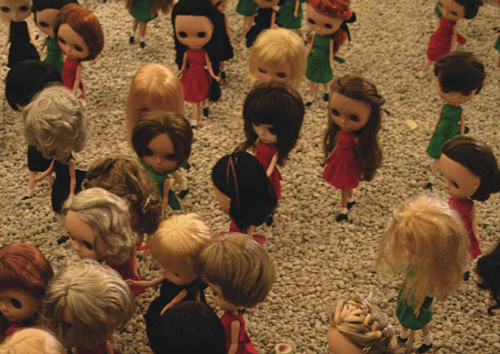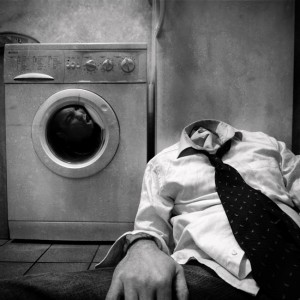In case you’ve missed it, Kent Johnson’s gone after Marjorie Perloff (PDF) for her entry on “Avant-Garde Poetics” in the Princeton Encyclopedia of Poetry and Poetics, 4th ed. Writes Johnson:
[With] exception of a passing reference to the Brazilian brothers Augusto and Haroldo de Campos and their Concretista moment, not a single poet or group outside the Anglo-American/European experience is acknowledged. The entire Iberian Peninsula, even, goes missing!
Among those missing, he argues, are Vicente Huidobro, César Vallejo, Aimé Césaire, Kitasono Katue, Alejandra Pizarnik, and Raúl Zurita—plus he takes a few swipes at Conceptual Poetry and Flarf. Well worth reading.
Unresolved Latency
Geography Thursday
In “The Wrong Place” (published in Art Journal), Miwon Kwon argues:
Throughout the twentieth century, the history of avant-garde, or “advanced” or “critical,” art practices (however one might want to characterize those practices that have pressured the status quo of dominant art and social institutions) can be described as the persistence of a desire to situate art in “improper” or “wrong” places. That is, the avant-garde struggle has in part been a kind of spatial politics, to pressure the definition and legitimization of art by locating it elsewhere, in places other than where it “belongs.” (42-3)
Do you agree? Is this relevant to writing? Can writing be situated improperly? How so or not?
[Note: This post is being composed in a very wrong place for me: DC in a Starbucks with free wifi.]
avant-gagarde
Camille Paglia says:
If avant-garde is advanced guard, or vanguard, is Lady Gaga indeed avant-garde?
The Most Energy
This means starting with a very simple definition of the avant-garde. I stole it from Fairfield Porter, the great midcentury painter and critic, who said the avant-garde was always just the people with the most energy.
…
The scene seemed wild, but there were simple rules all along. You were given a white room in a Big Art City for a month. You had to do something in that room to generate attention beyond that month. You had to be written about, bought, or at least widely discussed. Then you would get to have the white room again for another month, and so on. If you did this enough, you had what was called a career. This generated what is perhaps this century’s biggest art movement: careerism.
…
A practical avant-garde is post-careerist. It seeks out low rent and private time, and it concentrates on powerful objects.
…
All of this means that the practical avant-garde has a lot of work to do. It knows that manifesto is the weakest genre and that promises are irrelevant, so it will use words but not hide behind them.
the “cute” avant-garde
 I have this thing against cuteness. Cuteness is dismissable, cast to the side as irrelevant. And I suppose, to be fair, what was the last cute thing you actually took seriously? There seems to be something inherent to cuteness that begs to be cuddled and pet, smooshed and distorted. Taken seriously, though, nah. Nope.
I have this thing against cuteness. Cuteness is dismissable, cast to the side as irrelevant. And I suppose, to be fair, what was the last cute thing you actually took seriously? There seems to be something inherent to cuteness that begs to be cuddled and pet, smooshed and distorted. Taken seriously, though, nah. Nope.
Rest in Unrest
It has even been suggested that I spent six years writing my last novel in order to create a demand that cannot be filled. Basic Black With Pearls has had rave reviews and has been bought by William Morrow Company in New York. Success and 60 cents will get me a ride on the subway. No one can find a copy of my novel in the bookstores.
First published age 45.
Did, but did not enjoy, raising rabbits for food.
94 is way bonus years.
All the literary forms were men’s, all the philosophies were men’s philosophies. … I had to translate these forms into the female
Achieved?
Pointed out that gardens might be an answer to God Money (or that fleas do tricks for food).
RIP Helen. To be avant and overshadowed by a spouse. Push back? Harder? But it happens. But let’s pause.



